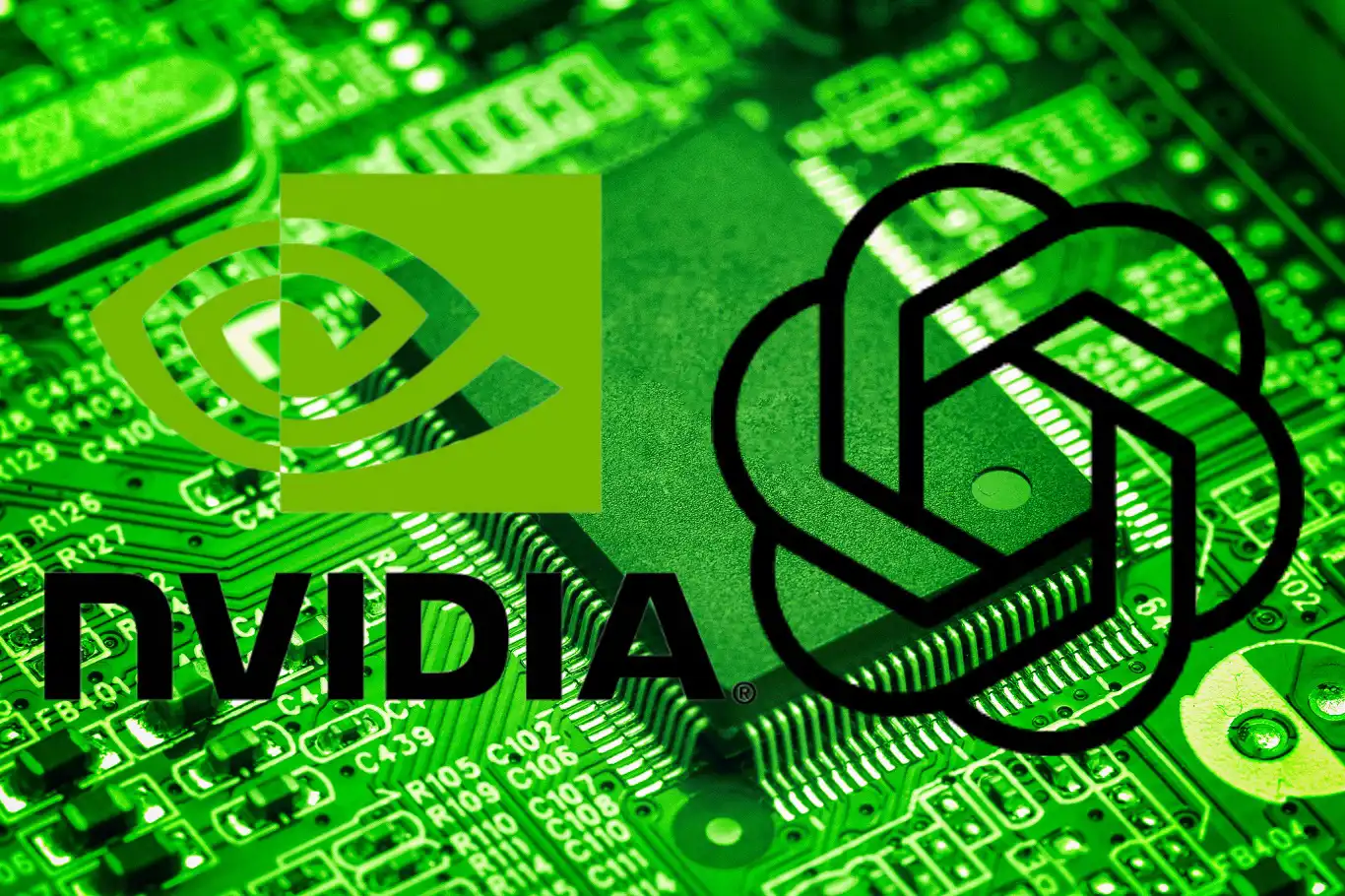Nvidia to invest up to $100 billion in OpenAI, bolstering AI partnership with chip supply deal


Nvidia announced a landmark agreement to invest up to $100 billion in OpenAI, the leading artificial intelligence research organization, while also supplying it with cutting-edge data center chips.
The agreement, revealed Monday, deepens the strategic partnership between two of the world’s most influential players in artificial intelligence.
The deal will give Nvidia a financial stake in OpenAI—valued at around $500 billion—through non-voting shares. In return, OpenAI secures critical funding and priority access to Nvidia’s cutting-edge chips, viewed as the backbone of AI development.
“This partnership is a game-changer,” said Sam Altman, OpenAI’s CEO. “Compute infrastructure is the foundation of the future economy, and with Nvidia’s systems, we’ll accelerate AI breakthroughs and empower businesses and individuals at unprecedented scale.”
According to sources close to the negotiations, the partnership will roll out in stages, beginning with an initial $10 billion investment, with the potential to scale up to $100 billion.
OpenAI is expected to use the funds to purchase Nvidia’s upcoming Vera Rubin platform, with the first gigawatt of computing power scheduled for deployment in late 2026. The companies have signed a letter of intent to expand capacity to at least 10 gigawatts, enough to power over 8 million U.S. households.
The massive infrastructure push ties directly to OpenAI’s $500 billion Stargate project, developed with partners Microsoft, Oracle, and SoftBank, which aims to build next-generation AI data centers worldwide.
Following the announcement, Nvidia’s stock jumped 4.4% to an all-time high. Oracle, another Stargate partner, gained nearly 6%, while Broadcom, which is co-developing custom AI chips with OpenAI and TSMC, saw its shares slip 0.8% amid concerns over Nvidia’s tightening grip on the market.
“This partnership could lock in Nvidia’s chip dominance and OpenAI’s software lead,” warned Andre Barlow, an antitrust lawyer, noting that it may make it harder for competitors like AMD and smaller AI labs to scale.
The sheer size of Nvidia’s planned investment has sparked antitrust concerns in Washington and Brussels. While the U.S. Justice Department and Federal Trade Commission opened inquiries into Nvidia, Microsoft, and OpenAI in mid-2024, analysts suggest that the Trump administration’s more business-friendly stance may ease regulatory barriers—at least in the short term.
Still, experts caution that as Nvidia-OpenAI consolidation grows, scrutiny from U.S. and EU regulators is likely to intensify, especially if rivals struggle to gain market share.
The pact underscores the accelerating consolidation of the AI sector. Nvidia recently invested $5 billion in Intel and took part in OpenAI’s $6.6 billion funding round in late 2024. Meanwhile, Google, Amazon, and other rivals are pushing to design their own chips as cost-effective alternatives to Nvidia’s hardware, which currently dominates the market.
OpenAI, despite its new pact, will continue pursuing its in-house chip development program with Broadcom and TSMC, reflecting the company’s long-term ambition to reduce reliance on any single supplier.
The Nvidia-OpenAI agreement represents a defining moment in the global AI race, combining Nvidia’s unmatched hardware capacity with OpenAI’s leading software models.
Industry analysts say the collaboration could accelerate breakthroughs across healthcare, finance, education, and national security—but warn it could also cement a duopoly, leaving smaller competitors struggling to keep pace.
As the deal moves toward finalization, all eyes will be on Washington, Brussels, and Silicon Valley to see whether regulators step in—or whether this partnership will proceed as a blueprint for the future of AI. (ILKHA)
LEGAL WARNING: All rights of the published news, photos and videos are reserved by İlke Haber Ajansı Basın Yayın San. Trade A.Ş. Under no circumstances can all or part of the news, photos and videos be used without a written contract or subscription.
As cyberattacks grow in scale and sophistication, experts are warning that encryption must now stand as a fundamental layer of corporate security.
Albania has appointed an artificial intelligence system named Diella as a cabinet-level “minister” to supervise the nation’s public procurement sector, aiming to tackle long-standing corruption.
Türkiye has announced a major national initiative aimed at developing domestically produced nuclear reactors, marking a significant milestone in the country’s energy strategy.